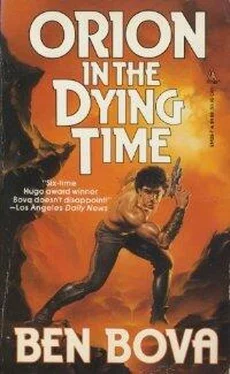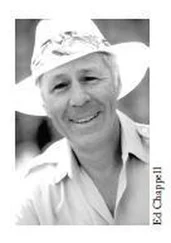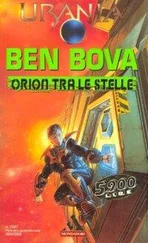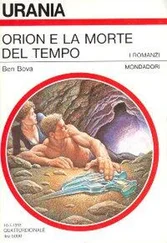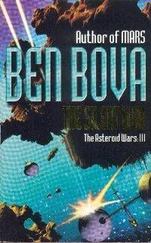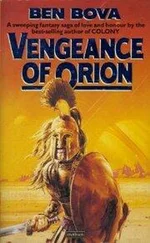Ben Bova - Orion in the Dying Time
Здесь есть возможность читать онлайн «Ben Bova - Orion in the Dying Time» весь текст электронной книги совершенно бесплатно (целиком полную версию без сокращений). В некоторых случаях можно слушать аудио, скачать через торрент в формате fb2 и присутствует краткое содержание. Год выпуска: 1990, ISBN: 1990, Издательство: Tor Books, Жанр: Фантастика и фэнтези, на английском языке. Описание произведения, (предисловие) а так же отзывы посетителей доступны на портале библиотеки ЛибКат.
- Название:Orion in the Dying Time
- Автор:
- Издательство:Tor Books
- Жанр:
- Год:1990
- ISBN:0-312-93111-5
- Рейтинг книги:4 / 5. Голосов: 1
-
Избранное:Добавить в избранное
- Отзывы:
-
Ваша оценка:
- 80
- 1
- 2
- 3
- 4
- 5
Orion in the Dying Time: краткое содержание, описание и аннотация
Предлагаем к чтению аннотацию, описание, краткое содержание или предисловие (зависит от того, что написал сам автор книги «Orion in the Dying Time»). Если вы не нашли необходимую информацию о книге — напишите в комментариях, мы постараемся отыскать её.
Orion in the Dying Time — читать онлайн бесплатно полную книгу (весь текст) целиком
Ниже представлен текст книги, разбитый по страницам. Система сохранения места последней прочитанной страницы, позволяет с удобством читать онлайн бесплатно книгу «Orion in the Dying Time», без необходимости каждый раз заново искать на чём Вы остановились. Поставьте закладку, и сможете в любой момент перейти на страницу, на которой закончили чтение.
Интервал:
Закладка:
Anya paled. She turned her fathomless silver-gray eyes to me, and I saw real pain in them.
I knew that we could escape to Paradise if we wanted to. To those who can control time, what matter days or years or even centuries spent in one era or another? We could always return to this exact point in spacetime, this individual nexus in the continuum. The crisis that Aten feared would still be waiting for us.
Yet how could we be happy, knowing that our time in Paradise was limited? Even if we remained there for a thousand years, the task awaiting us would loom in our minds like the edge of a cliff, like a sword hanging over our heads.
Before Anya could reply I said, “Paradise will have to wait, won’t it?”
She nodded sadly. “Yes, my love. Paradise will have to wait.”
Acknowledgments
The epigraphs that begin each section of this novel are from the Rubaiyat of Omar Khayyam ; “The City in the Sea” by Edgar Allan Poe; Paradise Lost by John Milton; and “Ulysses” by Alfred, Lord Tennyson.
The legend of the Light-Stealer and the Punisher is adapted from ideas originally developed by Isaac Asimov in his essay, “Planet of the Double Sun,” and is used here with his kind and generous permission.
Afterward
The story of Orion began in my mind many years ago when I first contemplated the concept that the myths and legends of ancient times must have been based on actual persons and events, at least in part.
Gilgamesh, Prometheus, the Phoenix that perishes in flames yet rises anew from the ashes—how much of these tales are fanciful elaborations and how much of them are real? We will never know, of course. The dusty debris of history has covered up the original events—whether they were actual adventures of living men and women or the total invention of some clever moralist.
Be that as it may, the true significance of a myth or legend lies not in its actuality but in its ability to instruct and inspire listeners (or readers). Over the course of time since the development of speech countless human beings have lived through uncountable adventures. Only a precious few have served as the nuclei for the myths that have moved all the generations that followed.
As Joseph Campbell and others have pointed out, some myths are universal to all human tribes. They have such a powerful statement to make that every known human society has adapted a variation of the same myth. For example, every culture has a Prometheus myth that tells how a god gave fire to a freezing, starving humankind and how, with fire, humans became almost godlike in their power while their benefactor was punished by his fellow gods.
As I wrote the continuing tale of Orion I found that the story moved between mythology and history, between legend and archeology. In this present volume, the saga moves into realms of natural history, both biological and astronomical.
Underlying all of that, however, is the deeper current of the novels, a level that I had no inkling of when I first began to write of Orion’s fantastic adventures. That level is, of course, the relationship of humankind to its gods.
The original novel, Orion , was driven by my curiosity about the Neanderthals. Paleontologists have found that there were two fully intelligent species of Homo sapiens on Earth some fifty thousand years ago: the Neanderthals and ourselves. The Neanderthals disappeared, and their disappearance is the subject of that first novel about Orion.
In writing it, however, the deeper theme arose from my subconscious. Given a far-future version of humankind, distant descendants of ours with vastly superior knowledge and technology at their disposal, they could invent the means to travel back through time and create the human race.
They would seem to their creatures as gods. What is more, given that possibility, we no longer need the supernatural gods that populate our religions. We have met our Creator, as Pogo would say, and he is us!
How apt and fitting. Many philosophers and modern-day psychologists have theorized that our gods are the creation of the human mind, an attempt to impose order and justice on a seemingly indifferent universe. Turn the concept full circle and we have human descendants from the distant future creating the human race itself. The gods that people worship have always seemed to have the same foibles and vanities that you and I have. The patriarchal God of the Old Testament appears to me very much like a spoiled, petulant nine-year-old boy. Perhaps that is because the gods are just as human as we.
All it takes is time travel.
Thus we have Orion, a human being purposely built by such a Creator to serve and obey, a hunter who was created to find and kill the enemies of his Creator. In time he begins to realize that the so-called gods are as human and fallible as he is himself. In time he begins to learn how to be a god himself. Or tries to.
Orion, then, is humankind’s representative, attempting to understand what the gods demand of him. Each step forward in his understanding brings him a step closer to godhood—a progress that some of the “gods” approve of, while others do not.
So much for the underlying tensions that drive the saga of Orion. Now for the particulars of this novel.
Among the myths that every human culture seems to share there is the myth of supernatural beings who are entirely evil: devils, demons, the Satan and Beelzebub that Dante and Milton wrote of. Their descriptions have always seemed decidedly reptilian to me.
To create a satanic reptile for this novel meant that I had to deal with the possibility of a species of reptile that is fully as intelligent as H. sapiens. No, actually my Set—to give him his ancient Egyptian name—would have to be as intelligent as my fictitious Creators, the godlike human descendants from our future.
For years I have been intrigued by the possibility of reptilian intelligence. Intelligent lizards are an old standby of science fiction, including my very first published novel of thirty years ago. Yet it always seemed unlikely to me that reptiles could be intelligent, regardless of their utility as “alien” creatures for science-fiction tales.
In the past decade several paleontologists have suggested that if the dinosaurs had not been extinguished in the great wave of extinctions that swept the earth some sixty-five million years ago, they might ultimately have given rise to an intelligent species. Dale A. Russell, of the Canadian National Museum of Natural Sciences at Ottawa, is the leading champion of this idea. He proposes that a small Cretaceous bipedal carnosaur, Stenonychosaurus inequalus , might have evolved into a big-brained, erect-walking intelligent reptile, given time.
Yet it seemed to me that time and brain size were not the only requirements for the development of intelligence. Intelligence requires interaction among individuals, communication. Had Albert Einstein been left in a wilderness at birth and never met another human being, he would never have developed the ability to speak, let alone do physics.
Most modem reptile species lay their eggs and never return to them, leaving the hatchlings to fend for themselves. So did most of the dinosaurs, although at least one species of duckbilled dinosaurs apparently cared for their young. For this novel I proposed that the reptilians that evolved on the fictitious planet Shaydan orbiting the equally fictitious star Sheol evolved intelligence through motherly care and a form of telepathy.
The telepathy is something of a cheat, I admit. But think of your own childhood experiences. Did not your mother have moments of startling telepathic powers?
The astronomical setting for this novel is accurate—up to a point. It is entirely possible to “rebuild” the solar system with a small unstable dwarf star at the same distance from the sun that the planet Jupiter is now. The gravitational perturbations on the earth and the other inner planets of our solar system would be negligible. The sun’s companion star could have one or more planets orbiting around it, just as the planet Jupiter now possesses sixteen or more moons.
Читать дальшеИнтервал:
Закладка:
Похожие книги на «Orion in the Dying Time»
Представляем Вашему вниманию похожие книги на «Orion in the Dying Time» списком для выбора. Мы отобрали схожую по названию и смыслу литературу в надежде предоставить читателям больше вариантов отыскать новые, интересные, ещё непрочитанные произведения.
Обсуждение, отзывы о книге «Orion in the Dying Time» и просто собственные мнения читателей. Оставьте ваши комментарии, напишите, что Вы думаете о произведении, его смысле или главных героях. Укажите что конкретно понравилось, а что нет, и почему Вы так считаете.
